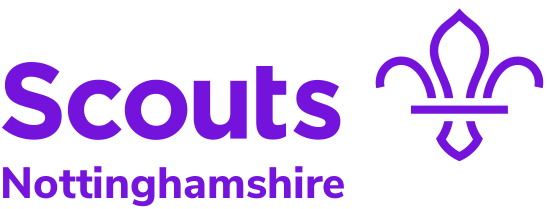First Aid Training / Module 10
This module is split into two parts; part A covers the theory and part B the practical validation. The modules aim to cover the skills and knowledge necessary to enable adults to manage an incident and provide basic first aid.
The Scouts run a first aid training programme in partnership with Girlguiding which covers the required topics but members may also undertake training with external providers so long as it meets the syllabus outlined below and is delivered by a reputable body. Examples of reputable bodies include: St John Ambulance, The British Red Cross, British Canoeing, Mountain Training, etc.
Training Delivery
In Nottinghamshire we currently run a blended approach to First Aid, made up of three stages:
Step 1 – Online theory e-Learning
The e-learning is the first element you will need to complete and this is done in your own time through an online learning platform. The platform will track your progress and completion of knowledge checks as you move through the course. This element will take approximately 2.5hrs to complete, and you can dip in and out as your progress will be saved. Click below to register for the e-learning.
Step 2 – Online Facilitated Session
The second element is an online facilitated session lasting 2.5hrs where a first aid trainer takes you through some more detailed knowledge checking exercises and discussions. Once complete this is sufficient to validate module 10A.
Step 3 – Face to Face Validation
The final element of the training is to attend a face-to-face validation. We currently run these as short drop in sessions, usually lasting about 30 minutes. During the face to face validation, you will be asked to perform some of the life support principals, such as CPR and the recovery position. Completion of this final element validates Module 10B.
Frequently Asked Questions
What topics are covered?
Life Support
- The principles of first aid and initial response (arriving at and managing an incident)
- Emergency life support (recovery position and safe airway)
- CPR, including technique for adults and children
- Choking
- Causes and treatment of unresponsiveness
Trauma and injury
- Shock
- Bleeding
- Fractures and sprains
- Head injuries
- Dental incidents
- Burns
Major illness
- Asthma
- Anaphylaxis
- Heart Attack
- Stroke
- Seizures
- Diabetes
- Sepsis and meningitis
If I'm renewing my training, can I just do a refresher course?
Unfortunately not. Upon reviewing the content of the refresher course, nationally, it was felt that 2 hours was not long enough to refresh participants on all areas of the syllabus, and allow time for practice of skills. This risked parts of the syllabus being omitted, or not enough in-depth coverage of important topics that may have changed.
Do I have to do the blended learning approach? Can I just do a course?
Some courses are available, but these are limited and are being prioritised for those individuals who are physically unable to undertake their training via the blended model. Wherever possible we are asking people to use the blended model, but if you require extra assistance completing your training that can only be provided by attending a course in person, then please visit the booking page to find upcoming courses.
Some districts are also running their own First Aid courses separately to the county provision, so look out for communications from your district team about any upcoming courses.
I have a first aid certificate from work, does that count?
(Any course that is set by a reputable body, and covers the criteria, recognition and length requirements (6hrs for First Response, 2 days/14hrs for Full First Aid) outlined above can be considered as a suitable alternative to a First Response Certificate. Examples of reputable bodies include: St John Ambulance, The British Red Cross, British Canoeing, Mountain Training, etc.
Where an external course does not cover an element of the syllabus listed above the member should take the time to make themselves aware of the signs, symptoms and treatment of these conditions, or undertake additional training in order to cover them. It’s often possible for participants to request additional topics to be covered during a First Aid course that they are attending or to speak with a local Scouts first aid trainer to cover the final elements.
Please contact the County Training Administrator ([email protected]) who will be able to check the eligibility of your certificate for signing off your Scouts first response.
I am a medical professional, do I need to do this training?
The Scouts recognises that some professions by the nature of the job will have a first aid element; for example Nurses, Midwives, Police Officers, Medical Practitioners, Members of HM Armed Forces, Ambulance Care – Assistants/Paramedics/Technicians, etc. to exempt these profession from undergoing more first aid training, they are required to provide evidence of an up-to-date qualification which should meet the criteria for what is considered our minimum standard (as listed above). With regards to ‘evidence’, this can be a certificate or an official letter confirming the necessary areas have been met.
